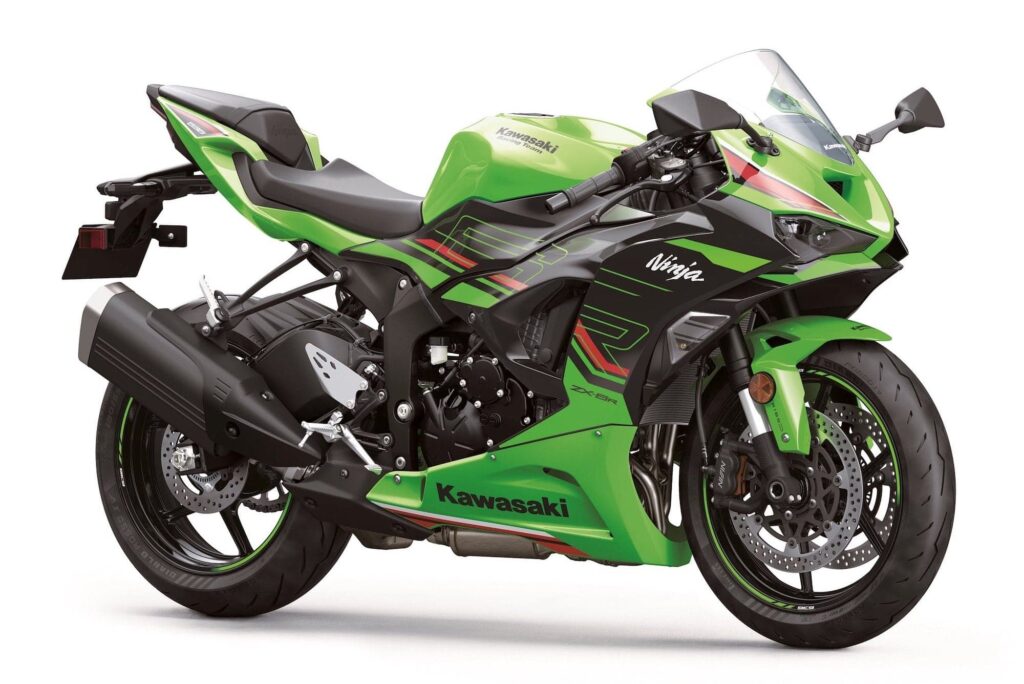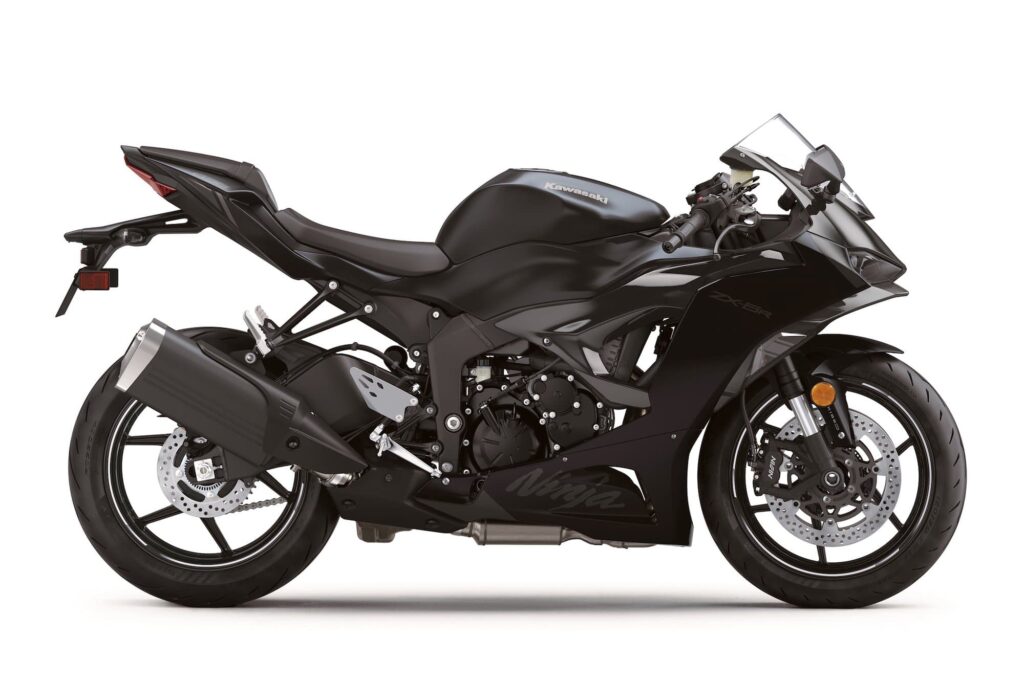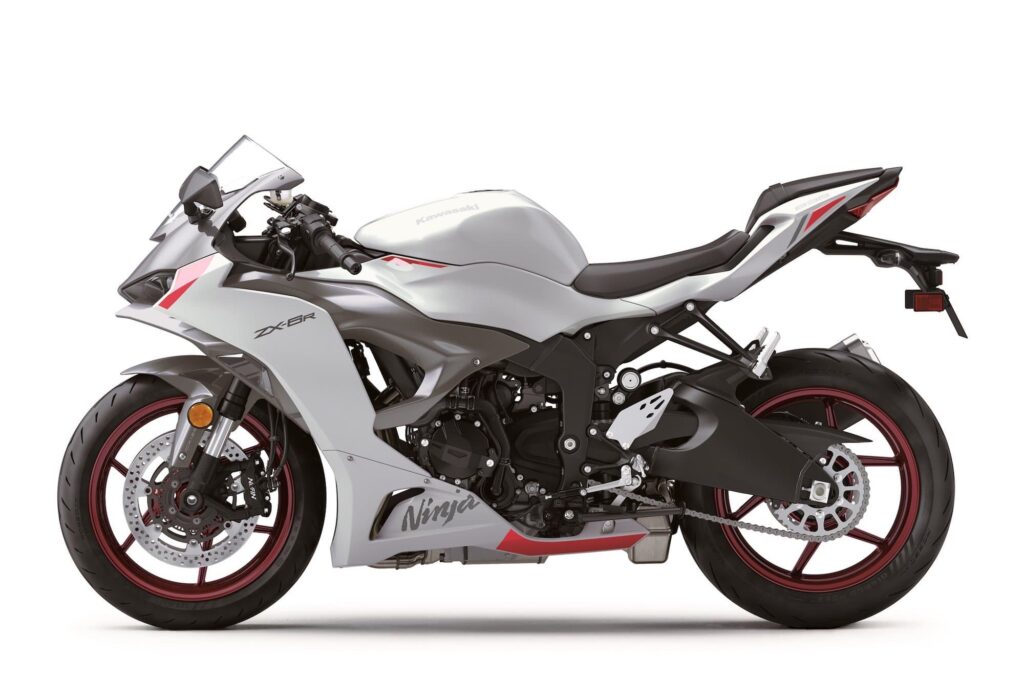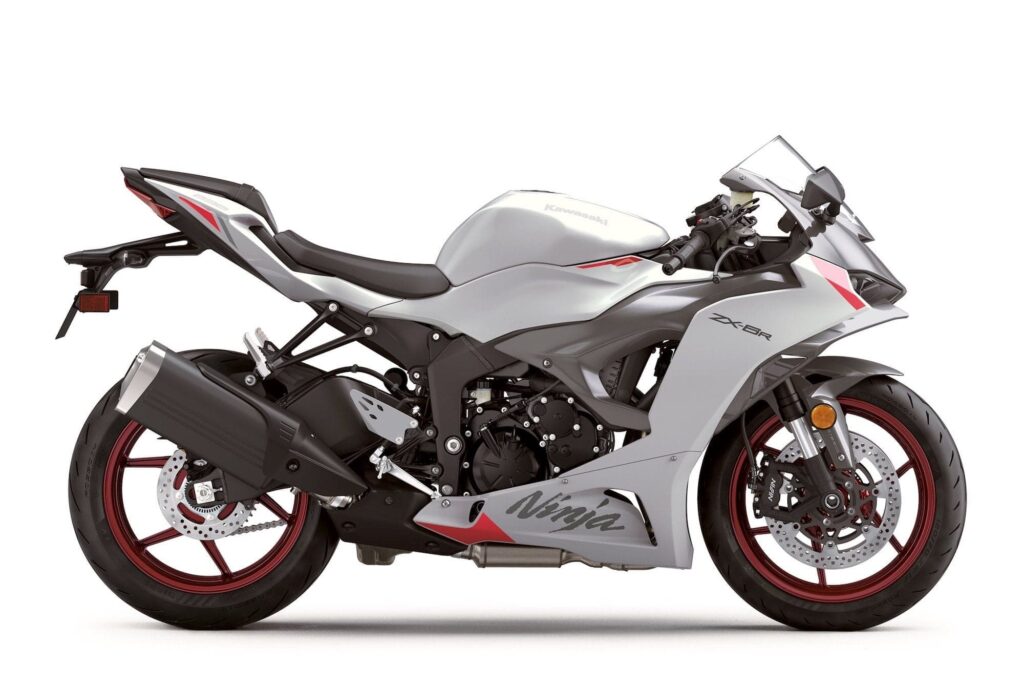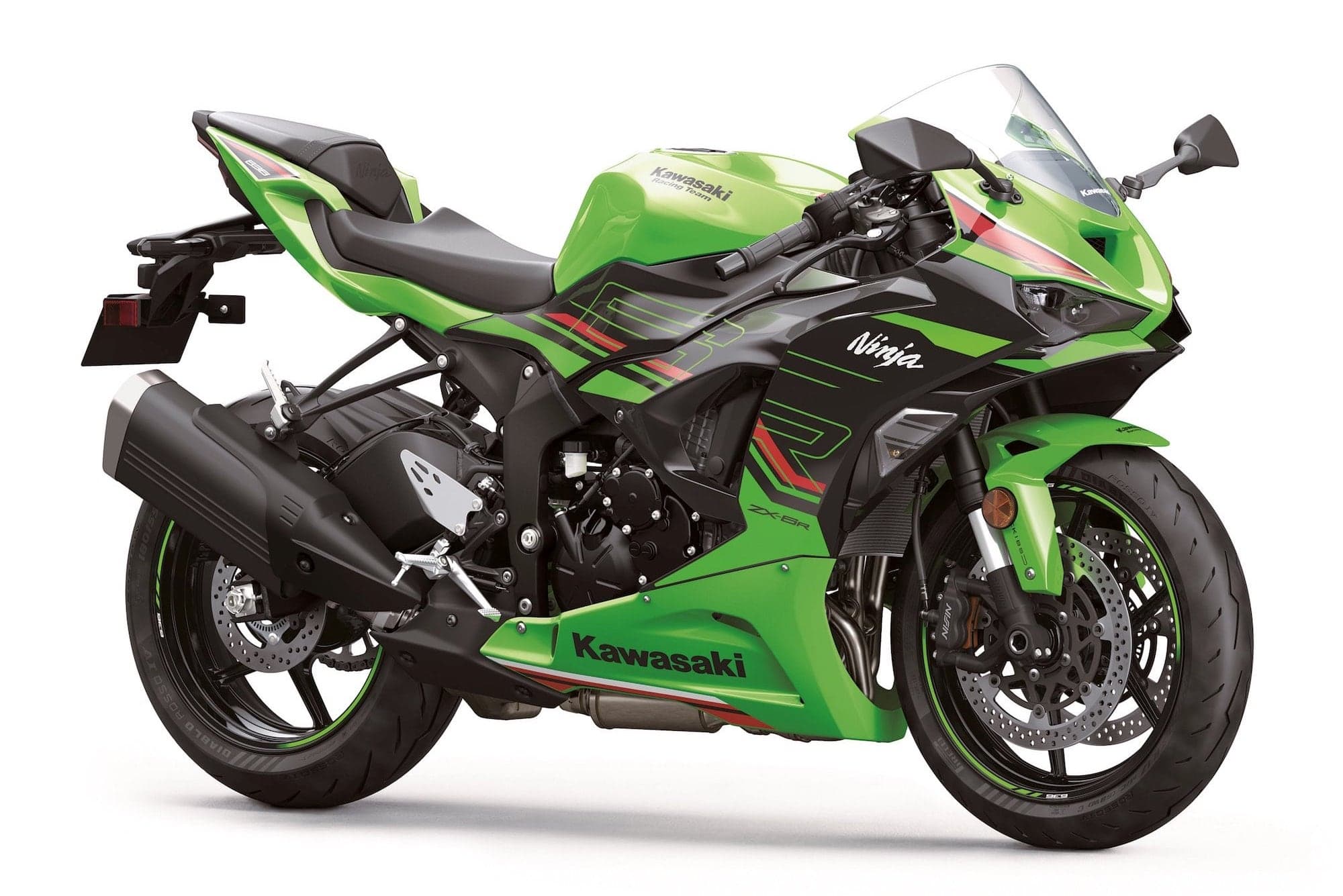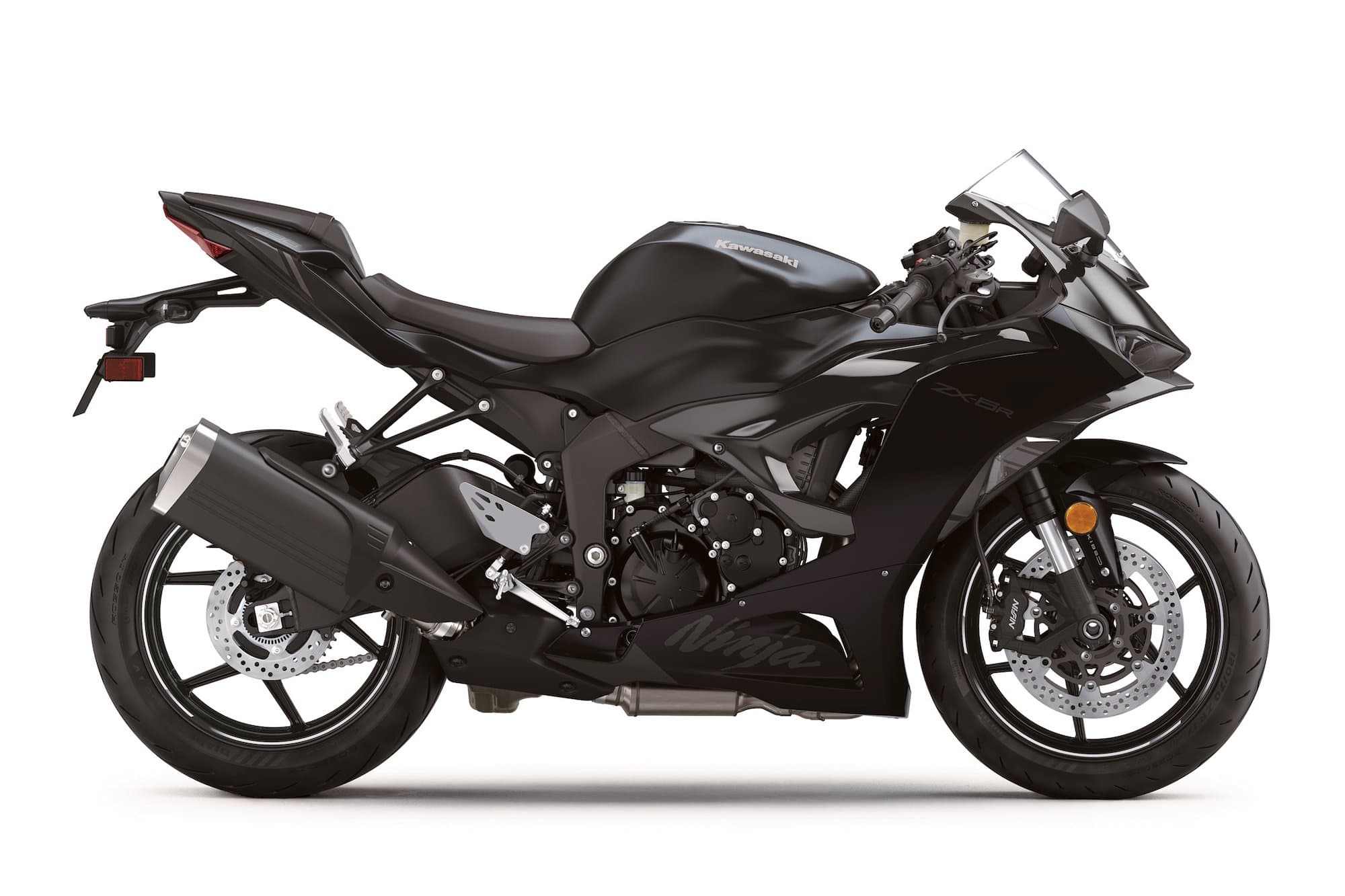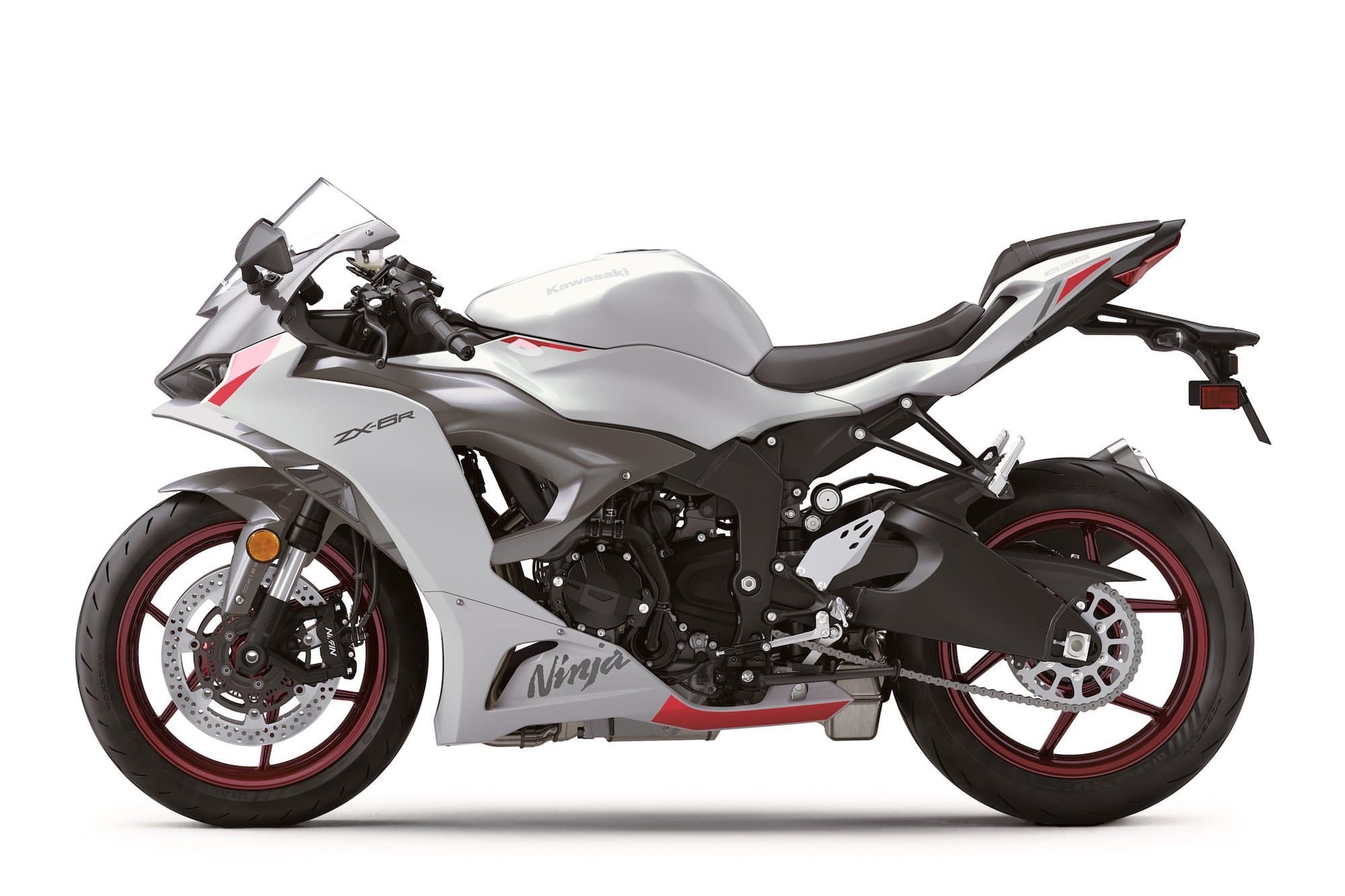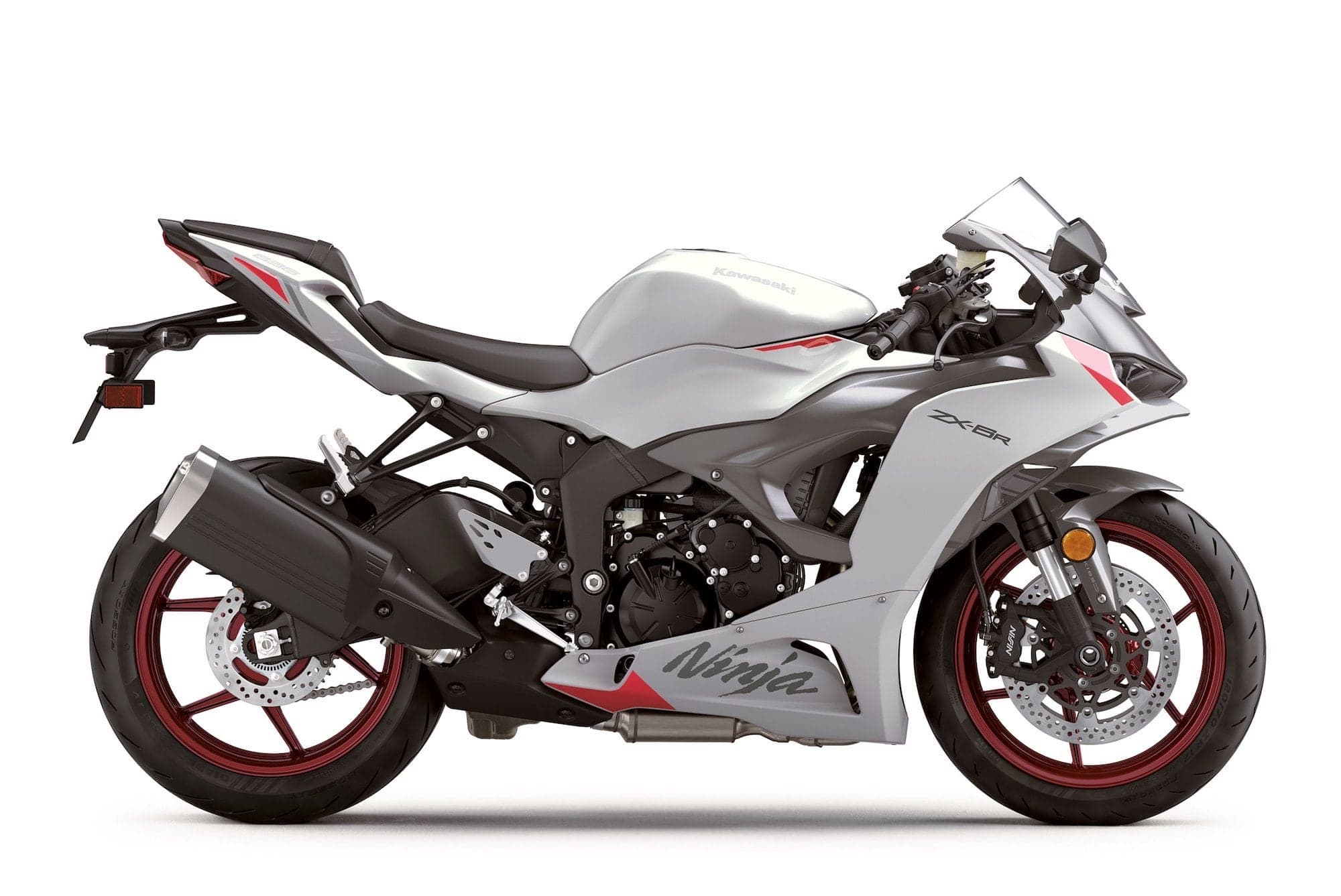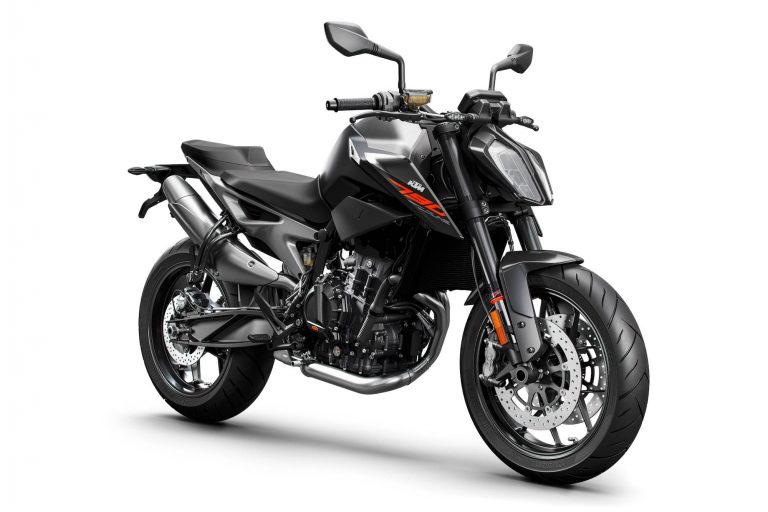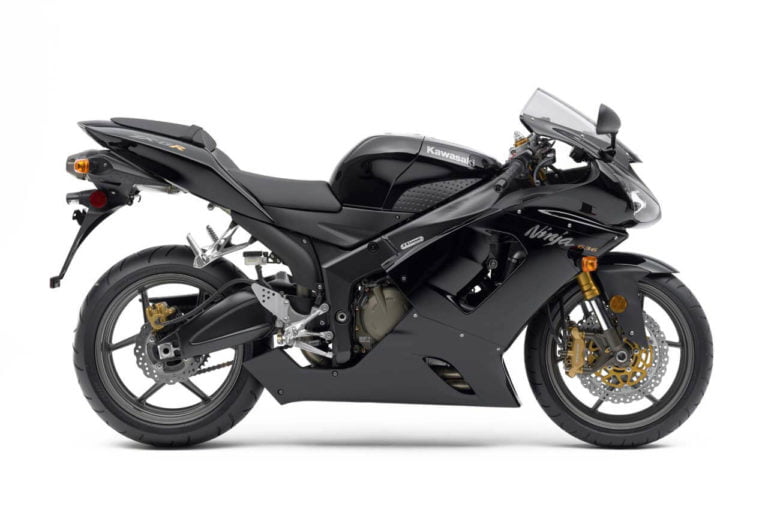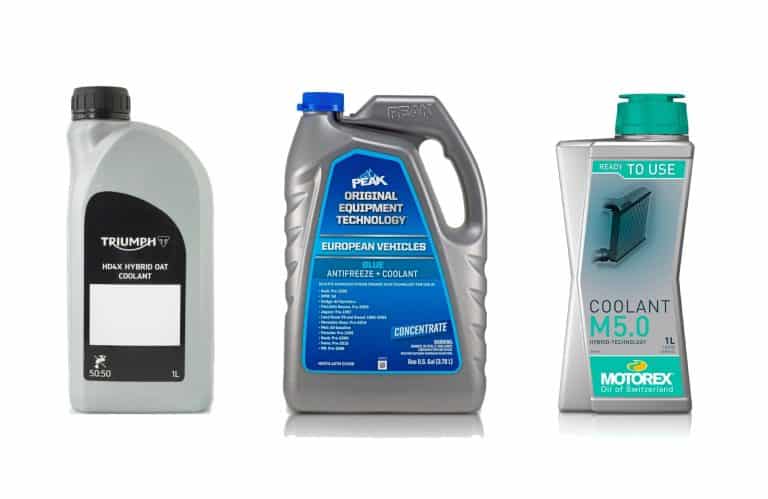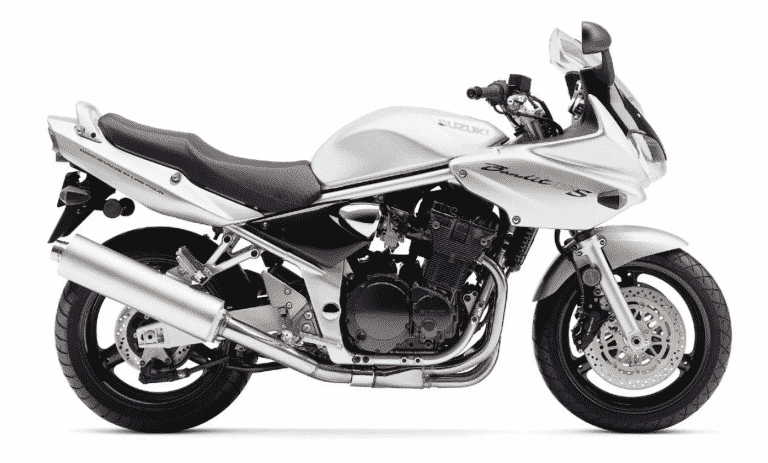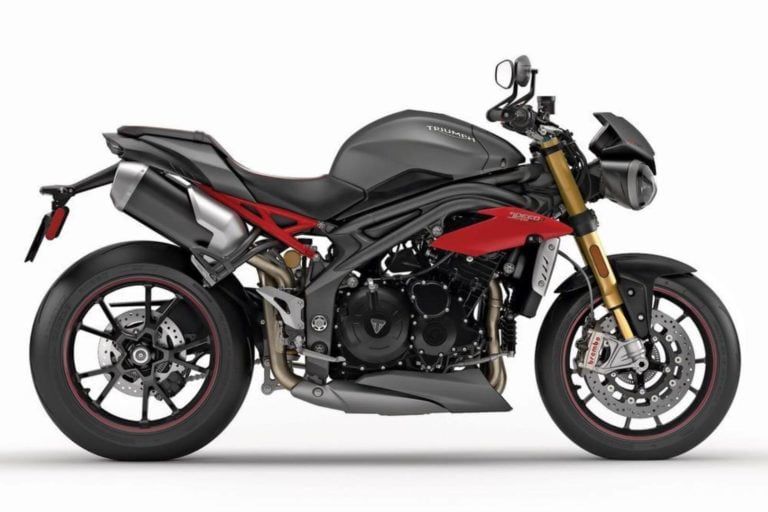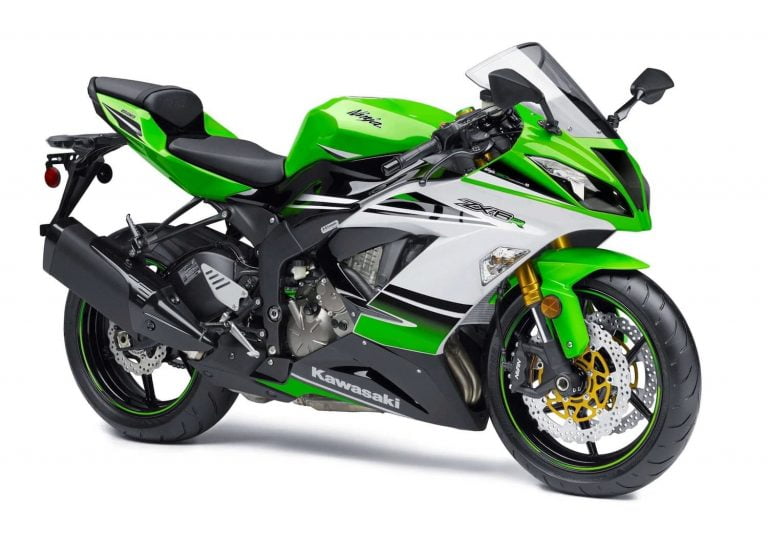2024 Kawasaki Ninja ZX-6R 636 Maintenance Schedule
This is the maintenance schedule, plus other related maintenance information, for the 2024+ Kawasaki Ninja ZX-6R 636.
The ZX-6R 636 is a 600-class (plus a little bit) sport bike that has been in production since 1995 through many generations, varying between 599 and 636 cc, sometimes concurrently. The ZX-6R 636 was available in 636 cc capacity between 2003 and 2007, then took a hiatus, and since 2013 has only been available in 636 cc format.
The 2024+ Kawasaki Ninja ZX-6R 636 is based on a 636cc liquid-cooled inline four-cylinder engine. It has dual overhead cams, four valves per cylinder, and four throttle bodies. It makes peak power of 91 kW / 124 PS / 122 bhp at 13 000 rpm, and slightly more with ram air. In US trim, it makes a little less peak power due to emissions regulations.
You might also be looking for one of these models of the Kawasaki Ninja ZX-6R:
- 1998-2002: Kawasaki Ninja ZX-6R, a 599cc sport bike
- 2003-2006: Kawasaki Ninja ZX-6R 636, a higher displacement sport bike than earlier generations
- 2003-2006: Kawasaki Ninja ZX-6RR, a 599cc race class motorcycle
- 2007-2012: Kawasaki Ninja ZX-6R, only available in 599cc
- 2013-2023: Kawasaki Ninja ZX-6R 636, second generation with much more rider aids
- 2024+ Kawasaki Ninja ZX-6R 636, with updated breathing, gearing, TFT display, and modified maintenance requirements
The main engine for the Kawasaki Ninja ZX-6R 636 has stayed largely the same since 2013. In 2019, Kawasaki gave it a new dash, a standard quick shifter, and a styling update. Kawasaki also revised the gearing, with a one-tooth smaller countershaft.
In 2023, Kawasaki updated the ZX-6R 636 for the 2024 model year, changing the gearing again, reducing peak power to conform with emissions requirements, and adding a TFT display. This makes it the most up-to-date motorcycle in the 600 cc class. Kawasaki revised the maintenance requirements, simplifying them somewhat, which is good news for owners.
This site has links from which we earn a commission (which unfortunately nobody can save, not even us). If you appreciate this research work, then please use those links. Thanks.
2024 Kawasaki Ninja ZX-6R 636 Updated Service Intervals
Overall, the 2024+ Kawasaki ZX-6R 636 has service intervals of 7 600 miles / 12 000 km or annually. At every service, change the oil and filter, and perform a standard list of service items.
Kawasaki also requires that you check the valve clearances of the 2024+ Kawasaki Ninja ZX-6R 636 every 7 600 miles / 12 000 km. This is twice as often as the previous generation. At the same time, change the spark plugs.
Editor’s note: Because of this increase in frequency, you may find that no adjustments are necessary — the stricter schedule may be (speculation!) just to maintain the engine at peak efficiency, to keep it within emissions limits.
Aside from that, regularly maintain the chain / sprockets, and keep the brake fluid and coolant fresh. There’s guidance below on maintaining the ZX-6R 636’s chain.
What you need to service the Ninja ZX-6R 636
To service your Ninja ZX-6R 636, you might need some basic maintenance tools. But apart from that, there are some specific parts you might need.
| Part | Kawasaki Ninja ZX-6R 636 Spec (2024+) |
|---|---|
| Oil | You need 3.6L of SAE 10W-40 engine oil “with API SG, SH, SJ, SL or SM with JASO MA, MA1 or MA2 rating”, preferably Kawasaki 10W-40 Engine Oil. Don’t over-torque the drain bolt (spec is 29 Nm/21 lb-ft per the manual) — use a torque wrench if you don’t have experience with how much torque is enough. |
| Oil filter | Oil filter is part 49065-0024, or you can use a high-quality replacement item, the HF303. Torque for oil filter is 17 Nm (13 ft-lb). Use a torque wrench if you’re unsure. |
| Front brake pads | Genuine part number for front brake pads is 43082-0131 for the 2017+ Ninja 636. Get double-sintered EBC brake pads for better bite and wear — code FA296HH. |
| Rear brake pads | Genuine part number for rear brake pads is 43082-0133. Get double-sintered EBC brake pads for better bite and wear — code FA436HH. |
| Spark plugs | NGK CR9E, with a spark plug gap of 0.7-0.8mm (use a spark plug gapping tool), torqued to 13 Nm or 9 ft-lb (use a torque wrench) |
| Air filter | Genuine part number is 11013-0036. You can also use the K&N equivalent KA-6009. |
| Cable lubricant | Remember to lubricate your clutch cable (and brake cables if you have them) with a cable lubricant. Protect All Cable Life is a good general-purpose lubricant. |
| Chain lubricant | The chain needs to be lubricated every 600 km / 400 miles (or more often, if it gets wet or dirty). Motul chain paste is cheap and well-loved. |
| Brake fluid | Spec is to use DOT-4 brake fluid, e.g. Castrol DOT 4. |
| Coolant | Use 2.5L (about 2.7 US qt) of nitrate-free, phosphate-free, ethylene glycol-based coolant with anti-corrosion inhibitors, e.g. Valvoline Zerex G05. |
| Grease | Use a lithium soap-based grease for all the important greasing points. |
Maintenance Schedule for the ZX-6R 636
Below is the maintenance schedule for the ZX-6R 636. It’s adapted from the manual, but with higher-priority items up top (e.g. oil changes), and an “inspection checklist” copied below.
Pre-ride / Regular maintenance
| Kawasaki Ninja ZX-6R 636 regular daily maintenance |
|---|
| Fuel — Check no leaks, and adequate supply in tank |
| Engine oil — Check adequate level / between lines |
| Tires — Check condition, and air pressure, and valve cap installed |
| Drive chain — Check slack and lubrication level (see below for guidance) |
| Bolts, nuts, and fasteners — Check all present, nothing loose |
| Steering — Check action is smooth but not loose from lock to lock and that there’s no binding of control cables |
| Brakes — Check brake pad wear, brake fluid level is between lines, and there’s no brake fluid leakage |
| Throttle — Check free play (2-3 mm) |
| Clutch — Check clutch lever free play, and smooth operation |
| Coolant — Check for no leakage, coolant level between lines |
| Electrical equipment — Check all lights and horn function |
| Engine kill switch — Ensure it stops engine |
| Side stand — Ensure it operates smoothly and the spring is not weak or damaged |
| Rear view mirrors — Adjust |
Notes on this maintenance schedule:
- Service at the first occurring service interval — distance or time.
- For higher odometer readings, repeat at the interval frequency shown below.
| mi x 1000 | 0.6 | 7.6 | 15.2 | 22.8 | 30.4 | |
|---|---|---|---|---|---|---|
| km x 1000 | 1 | 12 | 24 | 36 | 48 | Every |
| Standard annual service — Perform (see list below) * Not all items required at break-in | ✓* | ✓ | ✓ | ✓ | ✓ | Year |
| Engine oil and oil filter — Replace | ✓ | ✓ | ✓ | ✓ | ✓ | Year, or more often as needed |
| Air cleaner element — Replace | ✓ | ✓ | More often if riding in harsh conditions | |||
| Spark plugs — Replace | ✓ | ✓ | ✓ | ✓ | ||
| Valve clearances — Inspect / adjust | ✓ | ✓ | ✓ | ✓ | ||
| Idle speed – Inspect / adjust (1 250 – 1 350 rpm) | ✓ | ✓ | ✓ | ✓ | ✓ | |
| Engine vacuum synchronization | ✓ | ✓ | ✓ | ✓ | ||
| Fuel filter — Replace | ✓ | ✓ | ||||
| Brake fluid (front and rear) — Replace | ✓ | ✓ | 2 years | |||
| Rubber parts of brake master cylinder and caliper — Replace | ✓ | 4 years | ||||
| Brake hoses — Replace | 4 years | |||||
| Steering stem bearing — Lubricate | ✓ | ✓ | 2 years | |||
| Coolant, water hoses, and O-rings — Replace | ✓ | 3 years | ||||
| Fuel hoses — Replace | 5 years | |||||
| Drive chain — Inspect wear / damage / condition | ✓ | ✓ | ✓ | ✓ | ||
| Drive chain guide — Inspect wear | ✓ | ✓ | ✓ | ✓ | ||
| Air suction system — Inspect | ✓ | ✓ | ✓ | ✓ | ||
| Condition of bolts, nuts, and fasteners — Inspect | ✓ | ✓ | ✓ | ✓ | ✓ | |
| Evaporative emission control system — Inspect | ✓ | ✓ |
Standard annual service
Below is the standard annual service for the ZX-6R 636. Perform it according to the schedule above.
Note:
- Items required at the break-in service are mentioned on the right.
- Some of the items are duplicated from the daily maintenance checks above, but if Kawasaki’s repeating them, they must be important!
| Standard annual service items | At break in? |
|---|---|
| Throttle control system (play, smooth return, no drag) Target play – 2-3 mm | Y |
| Brake operation — Inspect (effectiveness, play, no drag) | Y |
| Clutch operation — Inspect (play, engagement, disengagement) | Y |
| Fuel system — Check operation (pump works, no leaks) | Y |
| Cooling system — Check operation, no leaks | Y |
| Wheel bearing — Inspect for damage | |
| Brake system — Check for leaks, damaged or kinked hoses | Y |
| Suspension system — Check for smooth operation, no leaks | |
| Steering play — Check for smooth operation | Y |
| Electrical system — Check all lights and signals work | |
| Chassis parts — Lubricate (Lithium soap-based grease) |
Kawasaki Ninja ZX-6R 636 Chain Maintenance
As the Kawasaki ZX-6R 636 is a high-power sport bike that, maintaining the chain is an important part of your safety routine.
Use a good-quality chain lubricant like Motul chain paste, or a Motul chain care kit which comes with a couple of handy tools to maintain the chain (e.g. brushes).
Kawasaki recommends you follow the following chain maintenance schedule:
| Chain maintenance item | Every |
|---|---|
| Check drive chain lubrication condition, lubricating if necessary (Motul chain paste) | 400 mi / 600 km |
| Check drive chain slack, adjusting if necessary See below notes on drive chain slack | 600 mi / 1000 km |
Notes:
- Do these items (checking/adjusting slack, and checking/applying lubrication) more often if you ride your ZX-6R 636 in dusty or rainy conditions.
- Always lubricate the chain after washing the motorcycle.
On the Kawasaki Ninja ZX-6R 636, you measure chain slack by measuring the maximum deflection at the loosest point of the chain.
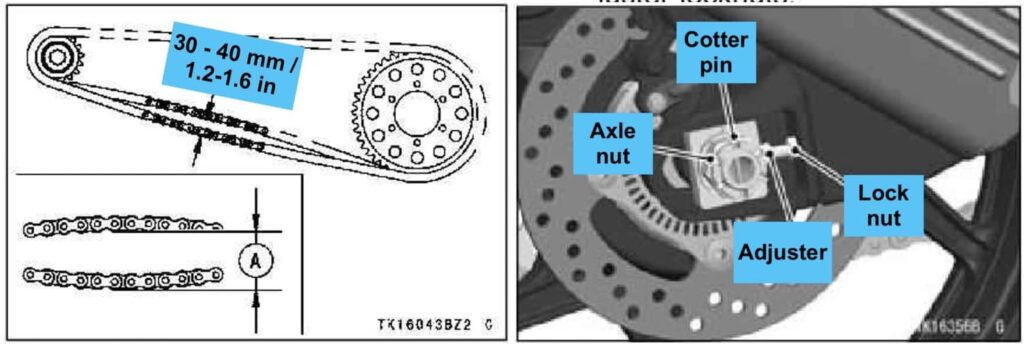
Target chain slack for the Kawasaki Ninja ZX-6R 636 (2013+) is 30-40mm (1.2-1.6 in)
If the chain is too loose, you should tighten it by loosening the axle nut (using a breaker bar), removing the cotter pin if necessary, and loosening the adjuster locknuts.
- Tighten the chain by turning out the adjusters evenly. Refer to the markings on either side of the axle to make sure the axle remains aligned.
- Tighten the axle nut with a torque of 130 Nm / 96 lb-ft (you’ll need a large torque wrench)
- Make sure to install a new cotter pin.
Wheels and tire pressures for Kawasaki Ninja ZX-6R 636
The following are the tire sizes and recommended tyre pressures per the manual. Obviously, adjust the tire pressures to something that more suits your riding style.
The ZX-6R 636 ships with Pirelli Diablo Rosso IV tires, replacing the earlier Bridgestone Battlax Hypersport tires that it used for many years.
| Wheel | Tire size | Tire pressure (cold) |
|---|---|---|
| Front | 120/70 ZR 17 M/C (58W) | 250 kPa / 2.5 bar / 36 psi |
| Rear | 180/55 ZR 17 M/C (73W) | 290 kPa / 2.9 bar / 42 psi |
About the Kawasaki ZX-6R 636 (2024+)
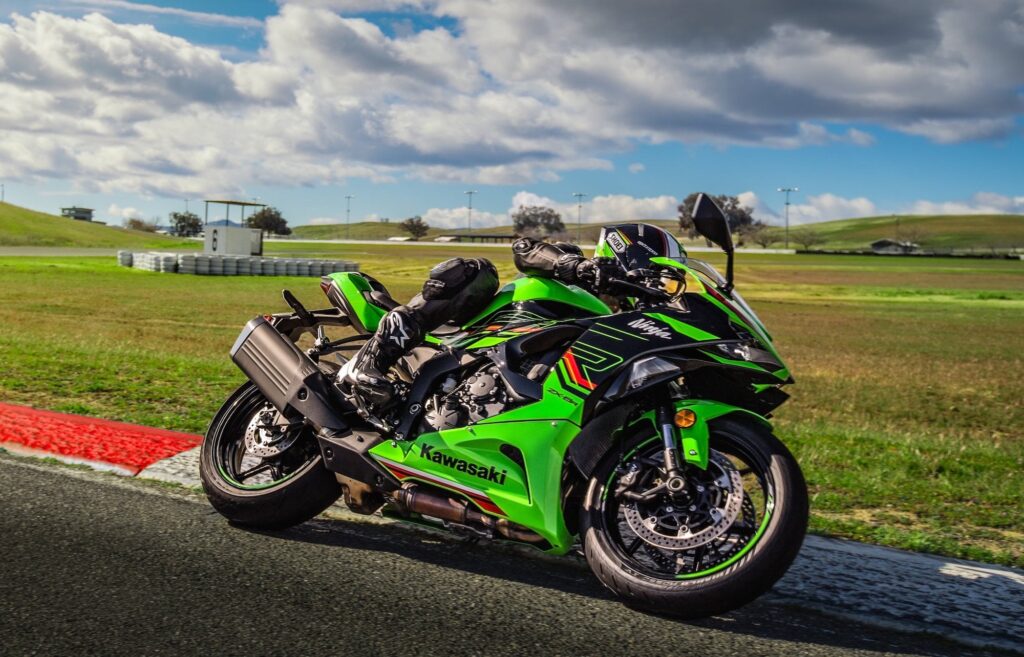
The Kawasaki Ninja ZX-6R 636 has been unique in the middleweight supersport category ever since the very first iteration, the 2003 Kawassaki Ninja ZX-6R 636.
Its “cheater” 636 cc displacement is what makes it unique. While other motorcycle manufacturers either try to focus on the track, or try to make 599 cc work for everyone, Kawasaki added a bit of displacement for all-round usability. It’s a tactic that Kawasaki has used in other areas, like in its Ninja 1000, for example, which has 1043 cc of displacement
So riders who like to ride on the street may prefer the ZX-6R’s torque delivery. Which isn’t to say it’s short on power, by the way. With ram air, it’s still good for over 90 kW or 120 hp peak power!
Peak power is a little down on the previous generations of Ninja 636, ostensibly because of emissions requirements. However, anyone who wants to use the Ninja on the track would be quick to install an aftermarket exhaust, and maybe even use camshafts from the previous generation engine.
As usual, the rest of the Ninja ZX-6R 636 is high spec. There’s fully adjustable suspension front and rear, and dual radial-mounted monoblock calipers at the front.
Kawasaki has moved to regular circular disc rotors, away from their almost signature wave rotors they used for many years.
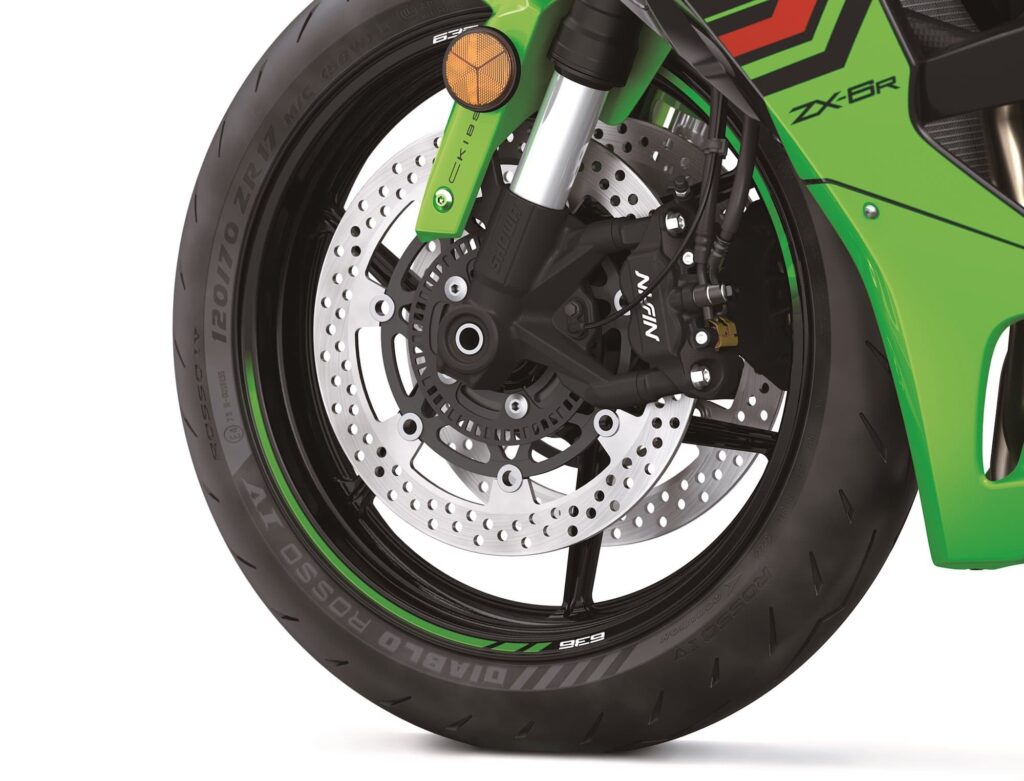
The 2024 model has a fresh face with LED lighting as standard.
Kawasaki also introduced a TFT panel to the new ZX-6R. They were a bit late to the game, leading many to think that maybe Kawasaki was leaving the ZX-6R to fade away… not so.
Kawasaki left the rest of the ride gear the same, though. It still has ABS and traction control, plus power modes. But there’s nothing fancier — no cornering ABS, nor cruise control. Other middleweight motorcycles like the Aprilia RS 660 still lead the way on that front.
Some of the new tech means that you can connect to the new 636 via a smartphone to via the Rideology app.
While the Kawasaki Ninja 636 still has competition from the GSX-R600 and CBR600RR, the Ninja is the most up-to-date consumer motorcycle you can get. The GSX-R hasn’t been updated in over a decade, and the updated CBR600RR — where available — is priced out of reach of the average consumer. Besides, the 636 displacement still makes it unique!
2024 Kawasaki ZX-6R 636 Core Specs
Below are some of the core specifications for the 2024+ Kawasaki Ninja ZX-6R 636.
| Item | Spec (2024+ ZX-6R 636) |
|---|---|
| Engine | 636 cm³ liquid-cooled, 4-stroke, in-line four |
| Compression Ratio | 12.9:1 |
| Bore x Stroke | 67.0 x 45.1 mm |
| Peak Power | 91.0 kW / 124 hp @ 13,000 rpm Ram air: 95.2 kW / 129 hp @ 13,000 rpm |
| Peak Torque | 69 Nm / 51 lb-ft / 10,800 rpm |
| Front Brake Type | Dual semi-floating 310mm discs, Radial-mount, monobloc, opposed 4-piston |
| Front Suspension Type | Inverted 41mm Separate Function fork (SFF-BP), fully adjustable |
| Rear Suspension Type | Bottom-link Uni-Trak, gas-charged monoshock with piggyback reservoir, fully adjustable |
| Ride Aids | Standard ABS, Traction control, power modes |
| Wet Weight (Full Tank) | 198 kg / 436 lb |
Reference — Owner’s Manual (Maintenance Section)
The above information came from a mix of the owner’s manual, official press documentation, and forum info. Here’s a screenshot from the ZX-6R’s manual for reference, so you can see the updated 7 600 mile / 12 000 km maintenance intervals.
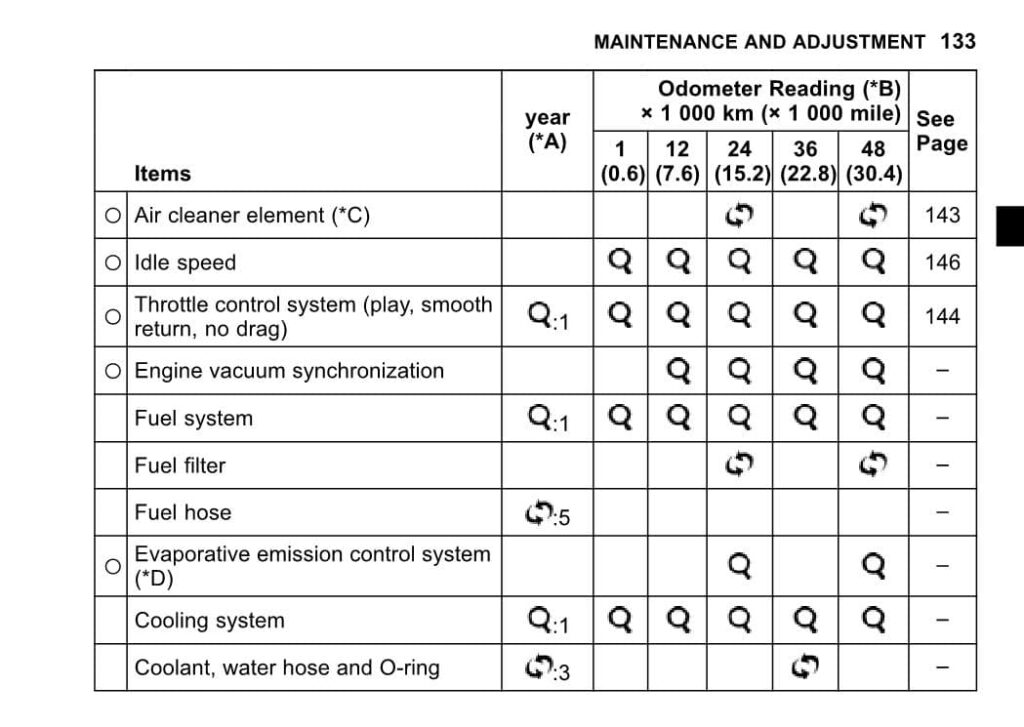
You can access the manual from Kawasaki’s website here.
You can also download the maintenance section here, below, extracted for your convenience.
